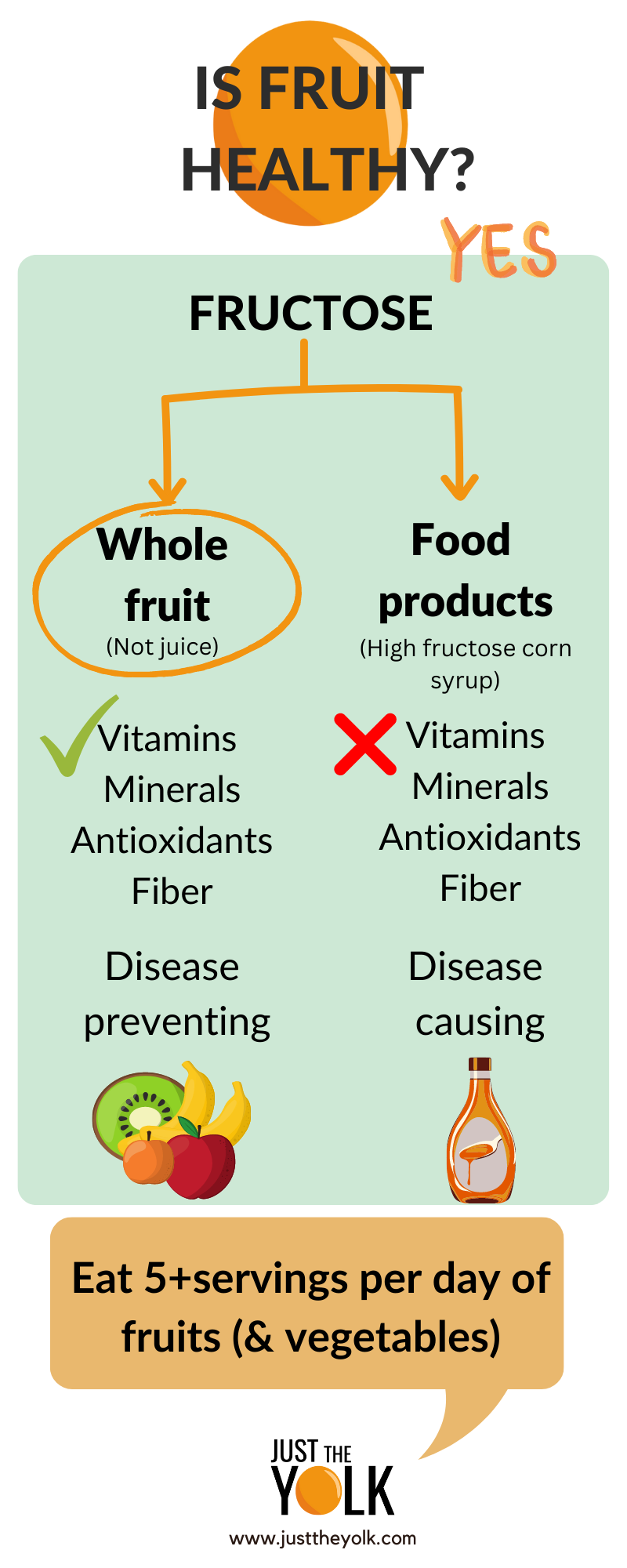This is a summary of an article at NutritionStudies.org
The Yolk
- Common myths based on fructose in fruit
- Increases risk of metabolic syndrome (heart disease, diabetes, stroke)
- Sugar sweetened drinks or foods made with fructose – yes
- Whole fruits – no
- Whole fruit actually helps prevent metabolic syndrome
- Causes insulin spikes or diabetes
- Whole fruit actually is preventative for developing diabetes
- Fruit juice may spike insulin but not whole fruit
- Causes weight gain
- No
- There is concern about fructose in some studies, but based on all fructose, including those in processed foods
- Commercially made fructose (high fructose corn syrup) acts very different in the body and has negative consequences
- What about juice?
- Whole fruit is preferable because the fiber (from the solid parts) slows digestion – juice is quickly digested
- It’s better than a soda if you have those two choices
- Is fruit healthy?
- Yes
- Whole fruit has vitamins, minerals, fiber, and antioxidants with many disease preventing actions
Perspective
- Whole fruit is part of a healthy diet and should be eaten without second thought (5+ servings/day)
- The fructose is not a concern
- Fructose in other food products is not part of a healthy diet and should be eaten sparingly
- High fructose corn syrup is NOT the same as fructose in fruit (55% fructose) and acts negatively in the body
- If you dislike vegetables, it’s okay to eat more fruit to get similar vitamins and minerals (particularly children)
- Fruits that you didn’t think were fruits
- Avocados
- Tomatoes
- Olives
- Cucumbers
- Pumpkins
- Peppers
Research


